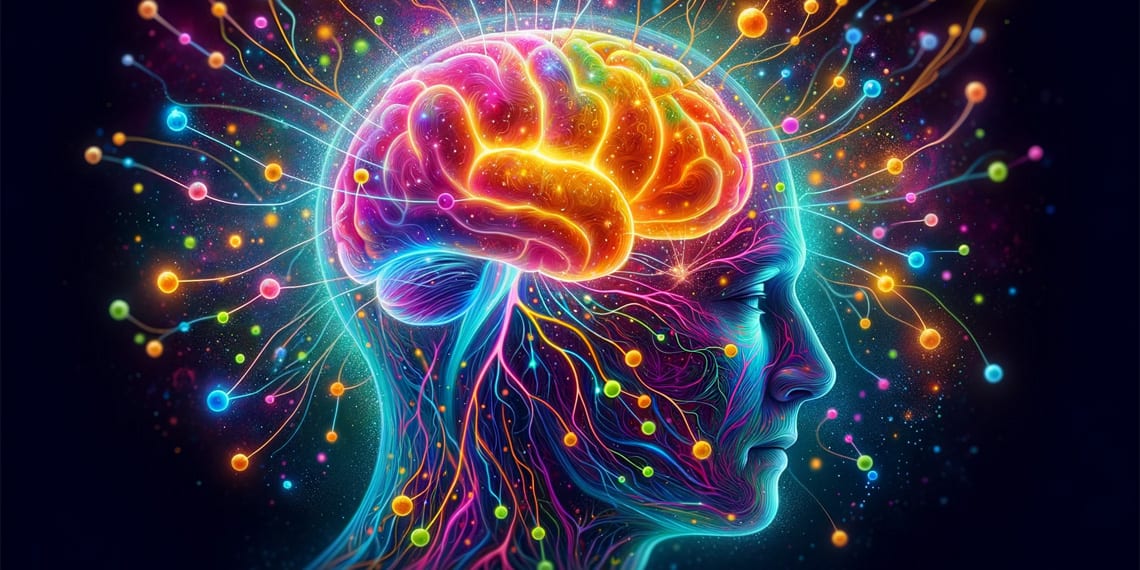Psychedelic treatments have sparked considerable interest in recent years, with several studies suggesting their potential to treat depression. However, how these substances compare to traditional antidepressants has been a subject of ongoing debate. A recent systematic review and meta-analysis published in The BMJ sheds light on this topic, focusing on the effectiveness of psychedelics, particularly psilocybin, compared to the commonly prescribed antidepressant, escitalopram.
The study’s findings reveal that among the psychedelics analyzed, only high-dose psilocybin showed greater effectiveness than the placebo response typically observed in antidepressant trials. Furthermore, when directly compared to escitalopram, high-dose psilocybin was the only psychedelic that demonstrated superior results. These insights suggest that while psychedelics may hold promise, their effectiveness relative to standard antidepressants might have been previously overestimated due to issues like unsuccessful blinding in clinical trials.
Over the past decade, the excitement surrounding the potential of psychedelics as treatments for mental health conditions, particularly depression, has grown significantly. Randomized controlled trials have suggested that psychedelics like psilocybin, lysergic acid diethylamide (LSD), and ayahuasca might offer significant relief from depressive symptoms. However, the mechanisms by which these substances work—and their true effectiveness—remain areas of active research.
One major concern in this field is the potential for overestimation of psychedelics’ effectiveness due to the difficulty in maintaining proper blinding in clinical trials. Blinding is crucial in these studies to ensure that neither the participants nor the researchers know who is receiving the active drug or a placebo. However, the strong and often unmistakable effects of psychedelics can make it easy for participants to guess whether they are in the treatment or control group, potentially skewing the results.
Given these concerns, a team of researchers in Taiwan aimed to assess the true comparative effectiveness and acceptability of psychedelics versus escitalopram, a well-established antidepressant. By separating placebo responses in psychedelic trials from those in antidepressant trials, the researchers sought to provide a more accurate estimation of these substances’ true efficacy.
The researchers conducted a systematic review and meta-analysis, a method that combines the results of multiple studies to draw more robust conclusions. They searched through numerous databases, including Medline and the Cochrane Central Register of Controlled Trials, to find relevant studies. The search was extensive, covering studies from the inception of these databases up to October 2023.
To be included in the analysis, studies had to meet several criteria: they had to be randomized controlled trials involving adults with clinically diagnosed depression or depressive symptoms related to life-threatening conditions. The studies also had to compare oral monotherapy treatments — meaning the treatment involved just one drug, without combining it with other antidepressants. Psychedelics studied included psilocybin, LSD, and MDMA (commonly known as ecstasy), among others. Escitalopram was the antidepressant chosen for comparison, as it is a commonly prescribed drug for depression.
Overall, 811 people (average age 42; 54% women) were included in 15 psychedelic trials and 1,968 people (average age 39; 63% women) were included in five escitalopram trials.
The researchers used sophisticated statistical methods to analyze the data, including network meta-analysis, which allows for comparisons between multiple treatments across different studies. They paid particular attention to the different placebo responses in psychedelic and antidepressant trials, which they treated as distinct to avoid estimation bias.
Among the various psychedelics analyzed, only high-dose psilocybin (defined as 20 milligrams or more) demonstrated greater effectiveness than the placebo response typically observed in antidepressant trials. This is a significant observation, as it suggests that the other psychedelics studied might not offer as much therapeutic benefit as previously thought, at least not in the context of treating depression.
When high-dose psilocybin was directly compared to escitalopram, it showed a slightly superior effect. However, this difference was relatively small, with a standardized mean difference of 0.31, indicating a small effect size. For context, escitalopram and other antidepressants generally exhibit similar effect sizes, typically around 0.3.
An intriguing aspect of the study is the observation that placebo responses in psychedelic trials were generally lower than those in antidepressant trials. In other words, participants in studies involving psychedelics who received a placebo (a substance with no therapeutic effect) tended to show less improvement in their depressive symptoms compared to participants in antidepressant trials who received a placebo.
This could be due to the strong, often unmistakable effects of psychedelics, which make it difficult for participants to maintain blinding in these trials. When participants can guess whether they are receiving the active drug or a placebo, it can skew the results. If participants realize they are not receiving the active drug, their expectation of improvement might decrease, leading to a lower placebo response.
“Serotonergic psychedelics, especially high dose psilocybin, appeared to have the potential to treat depressive symptoms,” the researchers concluded. “However, study designs may have overestimated the efficacy of psychedelics. Our analysis suggested that the standardised mean difference of high dose psilocybin was similar to that of current antidepressant drugs, showing a small effect size. Improved blinding methods and standardised psychotherapies can help researchers to better estimate the efficacy of psychedelics for depressive symptoms and other psychiatric conditions.”
But the new research is not without limitations. One major limitation is the small number of studies included, particularly those involving psychedelics. The field of psychedelic research is still relatively young, and many studies to date have been small-scale or preliminary.
Another limitation is the focus on short-term effects. The study did not assess the long-term effectiveness of psychedelics compared to escitalopram. Depression is a chronic condition, and understanding how treatments perform over the long term is crucial for developing effective therapies.
The researchers also noted that the effects of psychedelics could not be entirely separated from the psychological support that often accompanies these treatments. In many studies, participants receiving psychedelics also receive therapy or other forms of psychological support, which could enhance the treatment’s effectiveness. This makes it difficult to determine how much of the benefit is due to the drug itself versus the accompanying support.
Future research should focus on larger, longer-term studies that include rigorous blinding methods to ensure that the true effectiveness of psychedelics can be accurately assessed. Additionally, more studies comparing different doses of psychedelics to traditional antidepressants like escitalopram would be valuable in understanding how these treatments stack up against each other.
The study, “Comparative Oral Monotherapy of Psilocybin, Lysergic Acid Diethylamide, 3,4-Methylenedioxymethamphetamine, Ayahuasca, and Escitalopram for Depressive Symptoms: Systematic Review and Bayesian Network Meta-Analysis,” was authored by Tien-Wei Hsu, Chia-Kuang Tsai, Yu-Chen Kao, Trevor Thompson, Andre F. Carvalho, Fu-Chi Yang, Ping-Tao Tseng, Chih-Wei Hsu, Chia-Ling Yu, Yu-Kang Tu, and Chih-Sung Liang.




